
24/7 Insights
- Tax havens are perfectly legal.
- The US has its own tax havens, such as those in states like Delaware.
- It’s very hard to recover money from a tax haven nation.
- Also: Discover “The Next NVIDIA”
For better or worse, taxes are a staple part of life, valid for individuals and corporations. In most countries, taxes are an unavoidable part of making a living, and the money used from taxes goes to funding education, medicine, infrastructure, defense, and more. The good news is that paying taxes does have some benefits, but plenty of individuals (and companies) still want to avoid paying anything to the government.
What Is a Tax Haven?
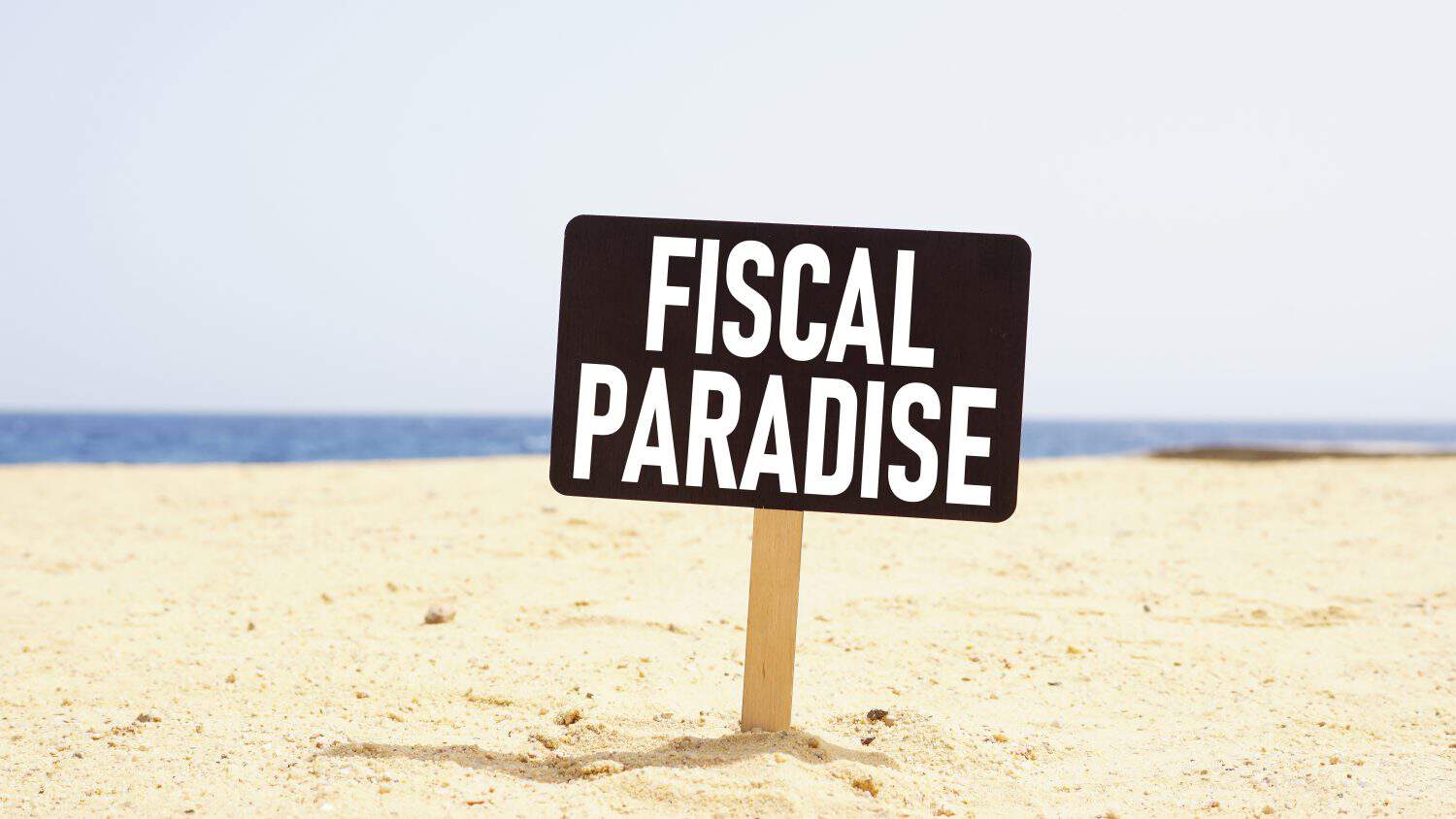
When you think about a tax haven, it’s essentially defined as countries offering zero, single-digit, or even low double-digit tax rates that individuals and corporations can use. By doing so, the world’s biggest overseas tax havens help reduce your taxable income, which means more money in your pocket.
What Types of Countries Are Tax Havens?
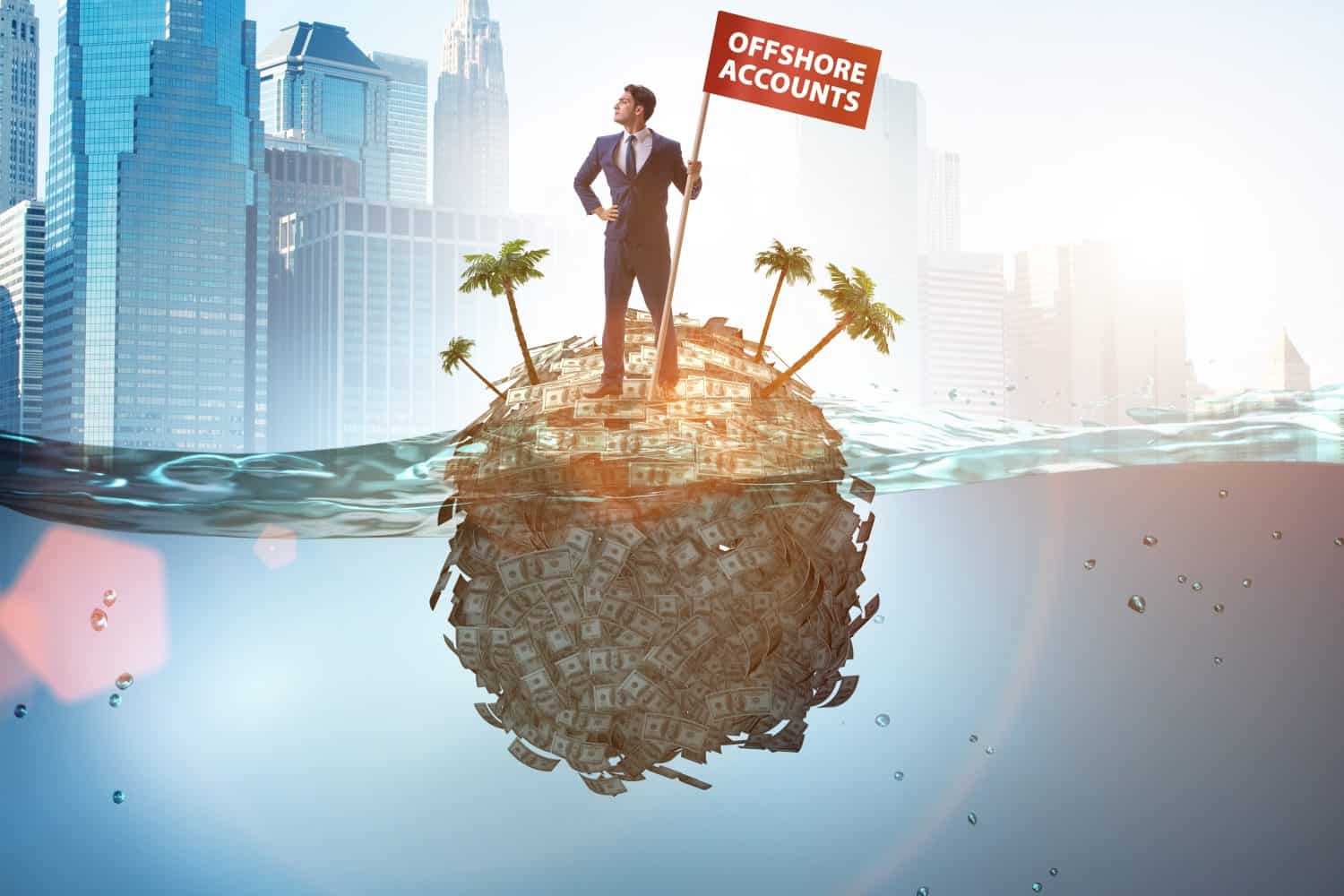
While not globally true, many countries identifying as tax havens are smaller in land area and population size. These countries are traditionally very economically stable and have vital financial sectors. As a result, they tend to attract global corporations and super-high-net-worth people who are looking to avoid paying millions in taxes.
Are Tax Havens Legal?
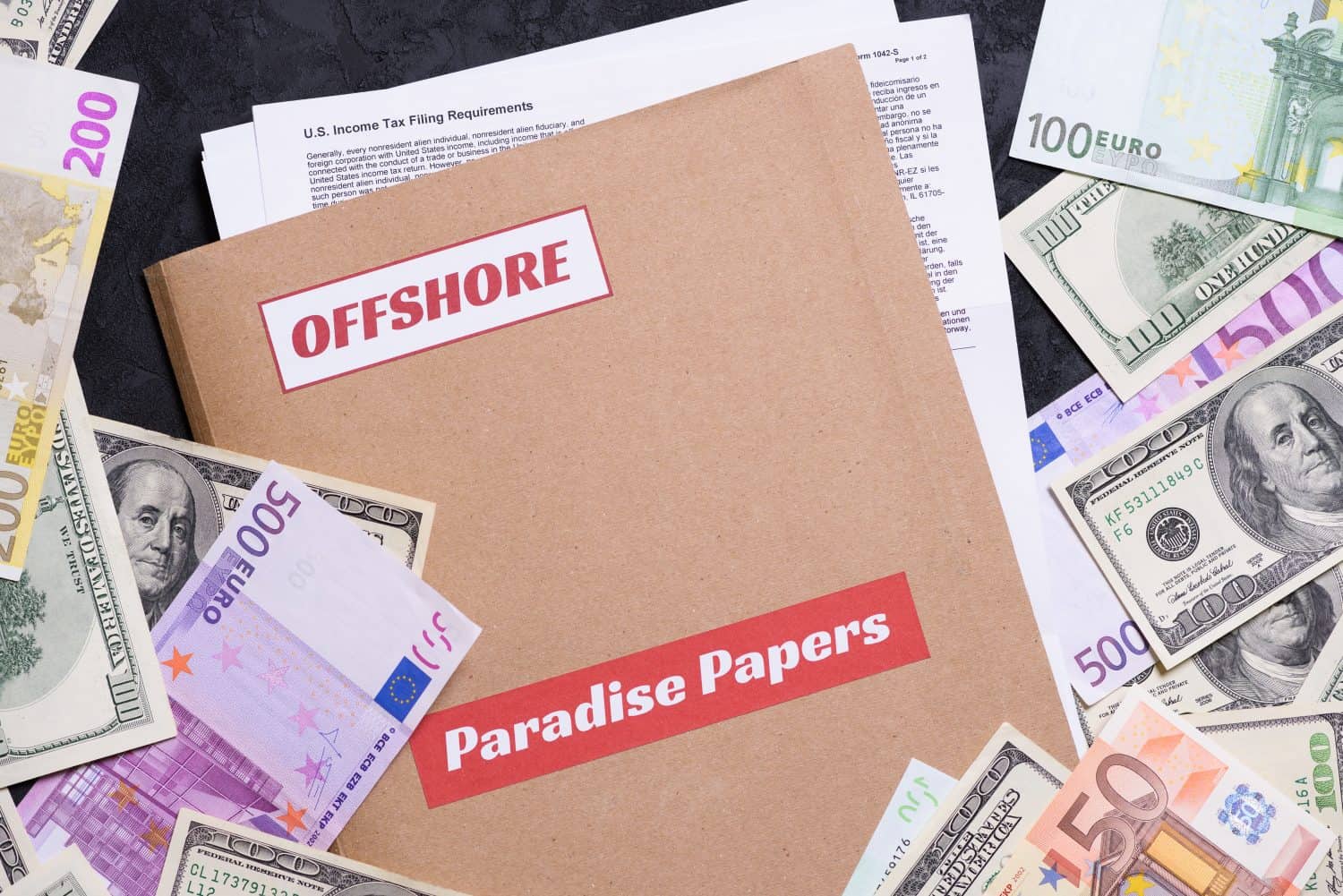
For the most part, tax havens are generally legal as they are created without the sovereign jurisdiction of nations with their laws and regulations. However, things get murky when individuals and corporations use tax havens to avoid the laws of their home countries, like the United States.
When Are Tax Havens Not Legal?
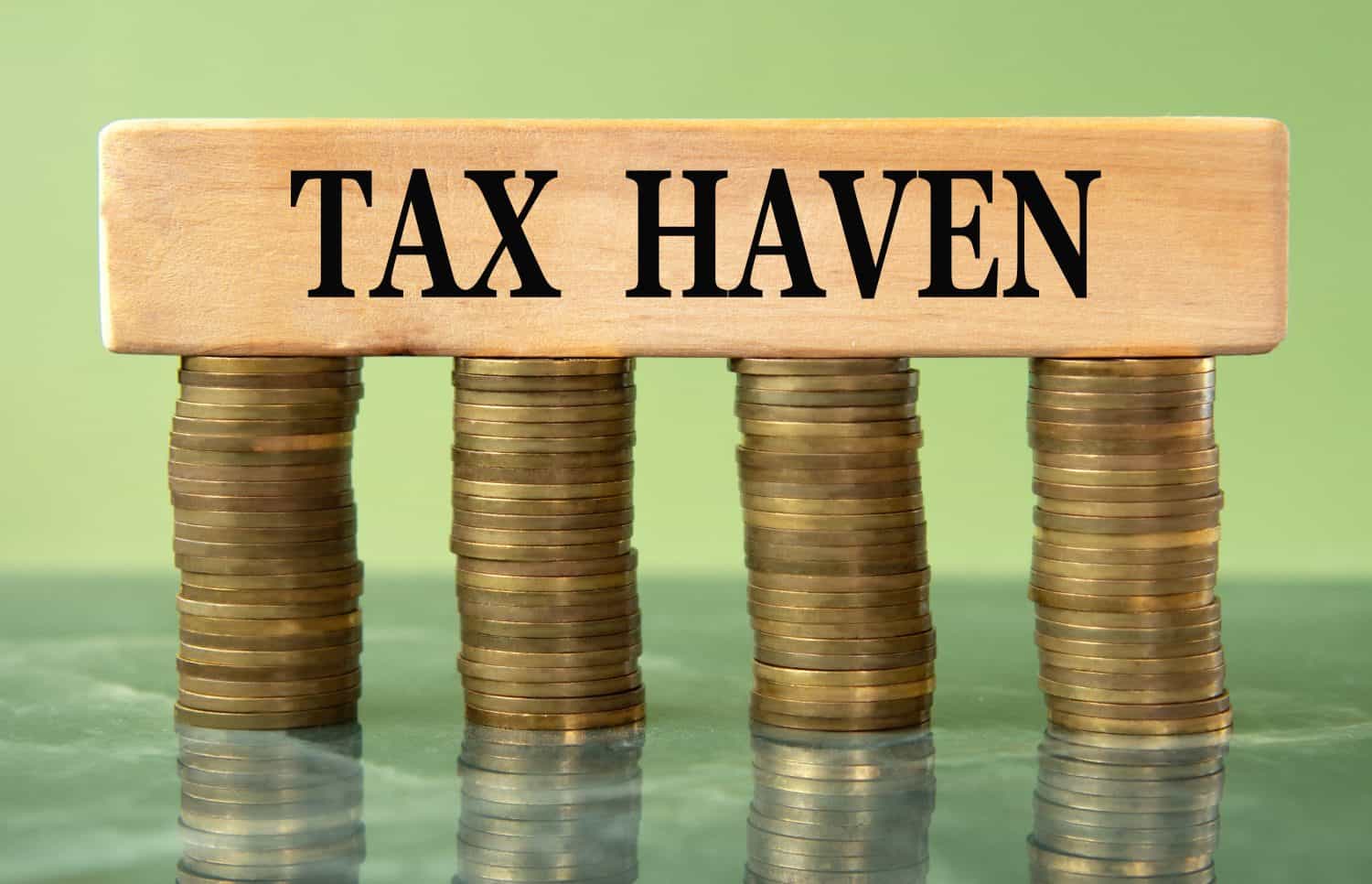
Even though tax havens are legal, things can get tricky when individuals or corporations use them to avoid paying taxes. There is general agreement that tax havens may be ethical. Still, any question of legality is generally specific to individual cases of how a person or company is using a tax haven.
Can The US Recover Tax Haven Money?
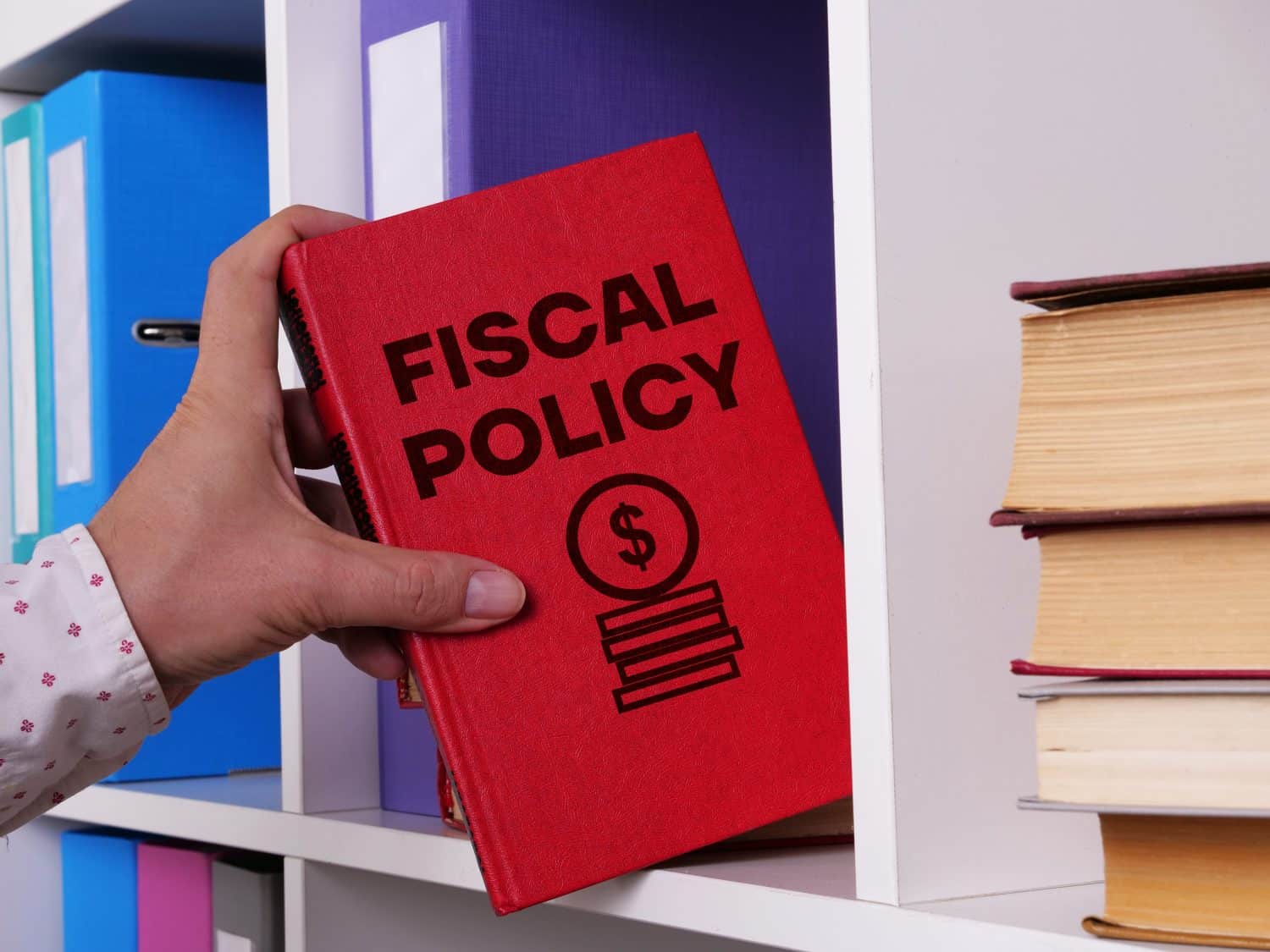
Given that the US potentially loses up to $1 trillion in revenue per year due to tax havens, it begs the question of when or if the country can recover any of this money. Recovering any money from a tax haven nation is incredibly complex and would require complete cooperation from the host nation. Acts in place, such as the FATCA or tax treaties, allow for the exchanging/recovering of tax dollars bilaterally.
10. Jersey

- Estimated deposits: $500 billion
- Corporate tax: 0% (10% for financial service companies)
- Income tax: 20% maximum
- Famous companies: Apple, Deloitte, Suntera Global
No Corporate Taxes
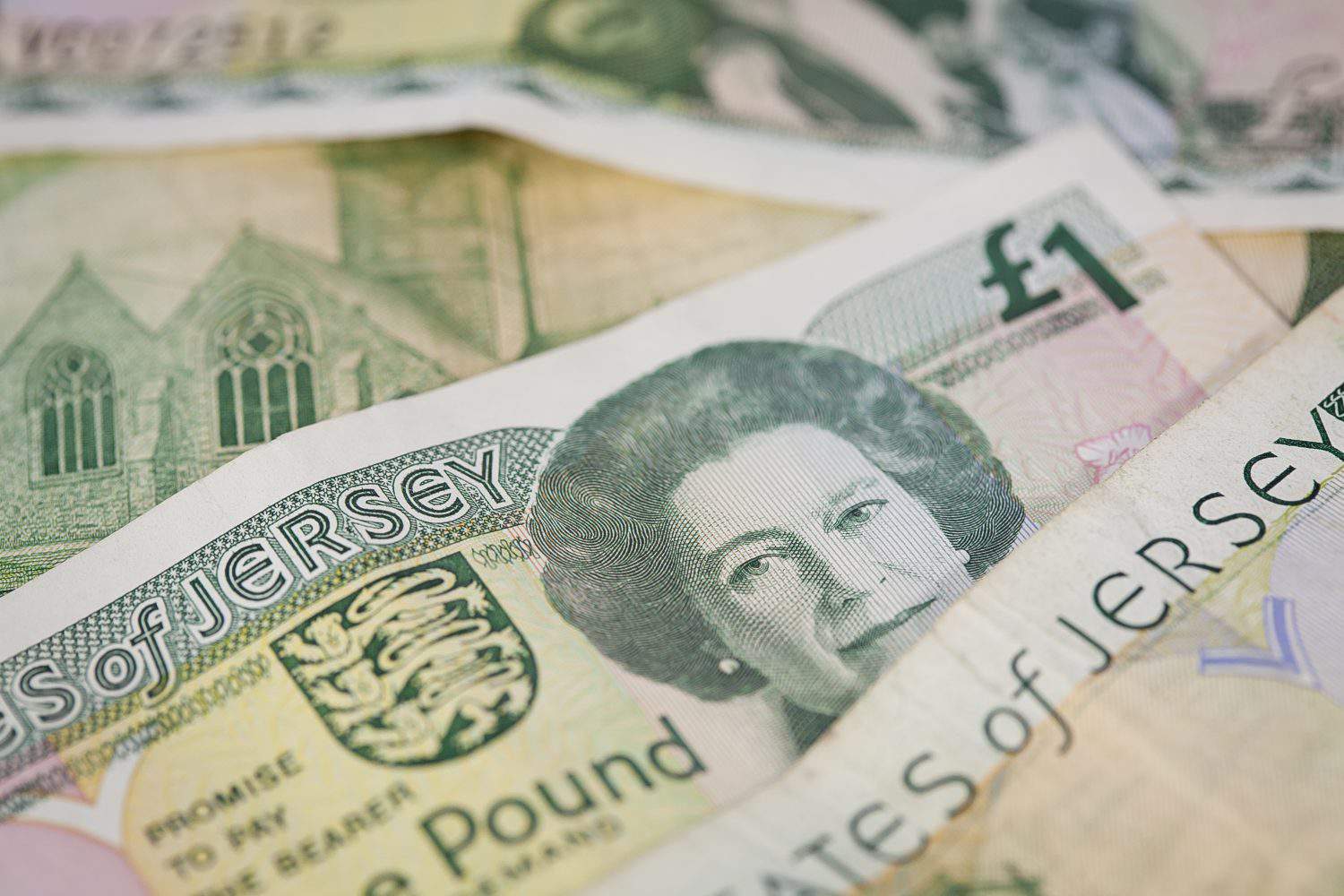
With fiscal sovereignty, Jersey can set its tax rates. As a result, Jersey is highly regarded as a tax haven without any inheritance, corporate, wealth, or capital gains taxation. In addition, Jersey is considered a “Golden Visa” situation for high net-worth individuals and only charges 1% on income over $850,000.
9. Bahamas
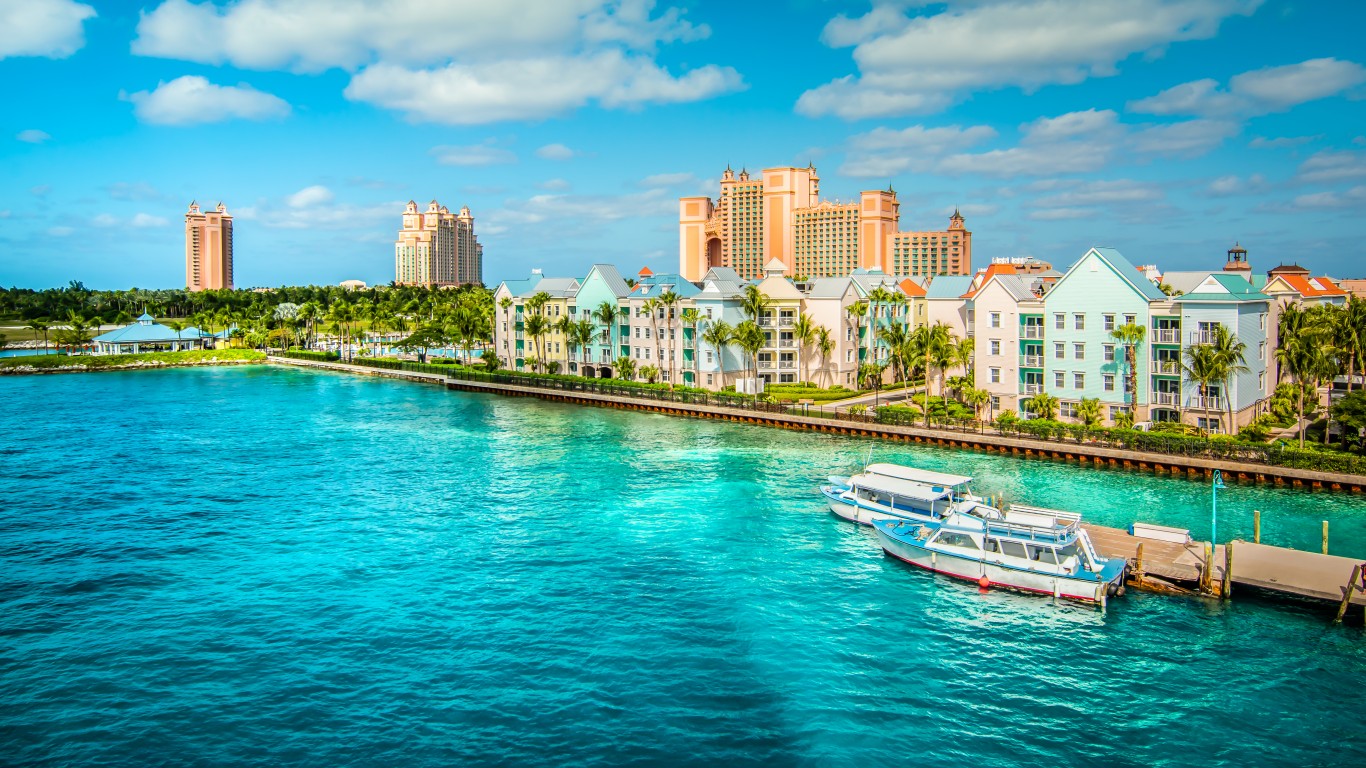
- Estimated deposits: $600 billion
- Corporate tax: 15%
- Income tax: 0% (not on income, inheritance, or gifts)
- Famous companies: Shell, Chevron, JP Morgan Chase, Goldman Sachs
It’s Better In The Bahamas

While the Bahamas are a beautiful holiday destination, they are also well known for hosting companies like Goldman Sachs and JP Morgan Chase. After legislation passed in the 1990s enabling the incorporation of offshore companies, both European and US corporations have a presence on the island with its secretive banking laws.
8. British Virgin Islands

- Estimated deposits: $700 billion
- Corporate tax: 0%
- Income tax: 0%
- Famous companies: Secretive haven for companies
No Royal Taxes

Home to more than 400,000 companies, or more than 1,000% of the country’s population, the British Virgin Islands are a definite tax haven. As a British Overseas Territory, it attracts significant UK businesses, and taxes are not paid on offshore corporations, nor is there any capital gains tax or tax on profits.
7. Ireland

- Estimated deposits: $800 billion
- Corporate tax: 12.5%
- Income tax: Up to 20% on a certain amount, rest at 40%
- Famous companies: Apple, Google, Microsoft, Facebook, Dell, Pfizer
A Corporate Favorite

Ireland has quickly grown into one of the world’s top 10 largest tax havens. While the country does not meet the 1998 OECD definition of a tax haven, corporate tax rates of 0 – 2.5% have made it incredibly attractive for brands like Apple, Google, Meta, and Microsoft, which all have a presence in this country, to sell services across the UK and EU.
6. Netherlands
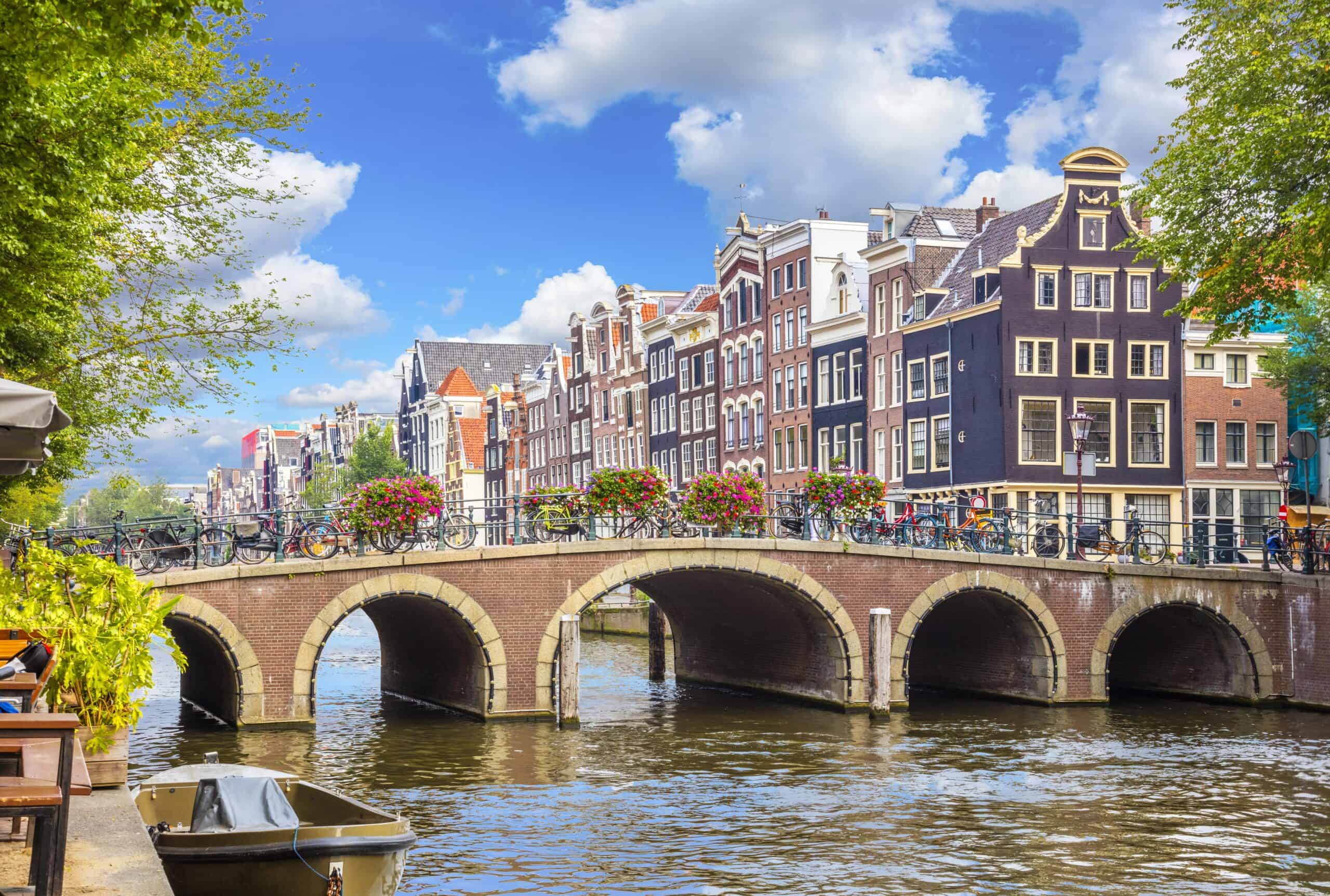
- Estimated deposits: $800 billion
- Corporate tax: Up to 25.8%
- Income tax: Up to 49.5%
- Famous companies: TimeWarner, Foot Locker, General Electric, Heinz
Dutch Sandwich Strategy
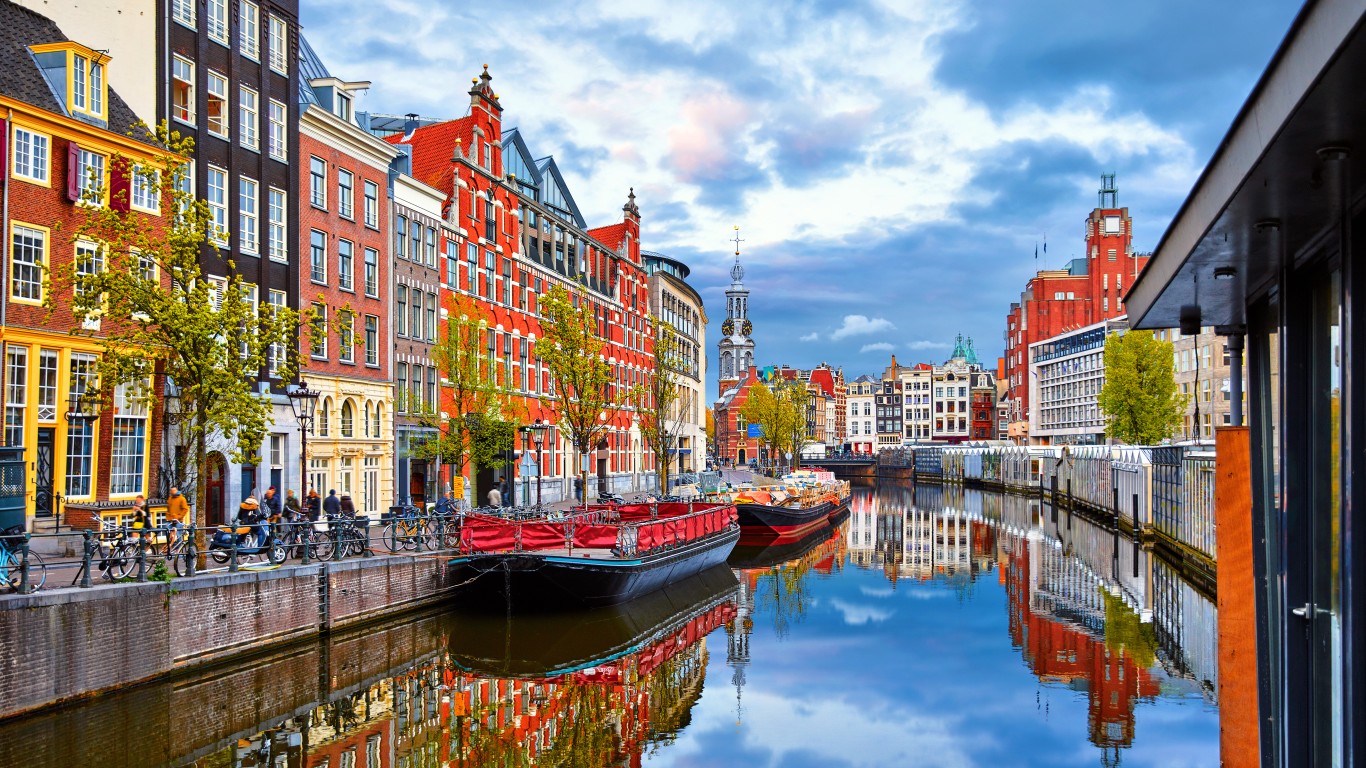
Often overlooked by individuals as a tax haven, the Dutch Special Purpose Entities still enable the country to be a tax haven, even if the government would prefer to remove this stigma. While Google may have moved its money to Ireland, debt shifting to the Netherlands is still very real.
5. Luxembourg

- Estimated deposits: $900 billion
- Corporate tax: Up to 24.94%
- Income tax: Up to 42%
- Famous companies: IKEA, Pepsi, Amazon
Multiple Fortune 500 Companies

One of the world’s wealthiest countries, Luxembourg is estimated to have at least one subsidiary registered in around 30% of Fortune 500 companies. Amazon famously funnels all European business through its headquarters in the country to skirt around tax laws.
4. Singapore

- Estimated deposits: $1 trillion
- Corporate tax: 17% flat rate
- Income tax: Up to 22%
- Famous companies: Google, Pfizer, Facebook
Plenty of Incentives

Long considered a tax haven for wealthy Americans, Singapore’s tax scale caps out at 22%. However, where things get interesting is that money earned outside the country is not subject to any taxes, on top of incentives the country offers to bring money into the country.
3. Hong Kong

- Estimated deposits: $1.1 trillion
- Corporate tax: 8.25% on the first $2 million, 16.5% on the remainder
- Income tax: Up to 17%
- Famous companies: Google, Alibaba, Starbucks
Asian Powerhouse

One of the most important financial hubs in all of Asia, Hong Kong has long been home to international wealth. With a tax rate capped at 17%, it’s significantly lower than most Western nations. Also, Hong Kong has no capital gains tax, increasing its appeal to corporations.
2. Cayman Islands Asian Powerhouse

- Estimated deposits: $1.5 trillion
- Corporate tax: 0%
- Income tax: 0%
- Famous companies: Pfizer, Alibaba, GlaxoSmithKline
No Corporate Taxes

Believed to host 1/15th of the world’s banking assets, the Cayman Islands have no corporate tax and do not impose direct taxes on residents. This includes taxes on property, payroll, and income, making it a hugely popular place to create subsidiaries for Pepsi, Wells Fargo, and Marriott brands.
1. Switzerland

- Estimated deposits: $2.3 trillion
- Corporate tax: 8.5%
- Income tax: Up to 41.5%
- Famous companies: Notorious for secrecy
Famously Secretive Laws

Arguably the best-known tax haven in the world, Switzerland is known for its strong financial privacy laws. As a result, it has been a top choice for wealthy individuals and corporations with advantageous tax policies. Switzerland also has fanatically strong privacy laws around finances and is a stable economy.
It’s Your Money, Your Future—Own It (sponsor)
Retirement can be daunting, but it doesn’t need to be.
Imagine having an expert in your corner to help you with your financial goals. Someone to help you determine if you’re ahead, behind, or right on track. With SmartAsset, that’s not just a dream—it’s reality. This free tool connects you with pre-screened financial advisors who work in your best interests. It’s quick, it’s easy, so take the leap today and start planning smarter!
Don’t waste another minute; get started right here and help your retirement dreams become a retirement reality.
Thank you for reading! Have some feedback for us?
Contact the 24/7 Wall St. editorial team.



